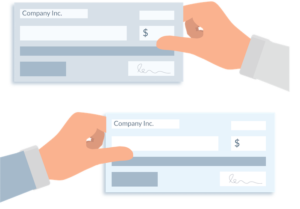
The Tennessee Prompt Pay Act provides protections to anyone working on public or private construction projects within the state. The statutes set payment requirements to both those making payment and those receiving payment. If you are working in the construction industry in the state of Tennessee, be sure you understand both your rights and liabilities for payment.
Tennessee Prompt Pay Act
The Tennessee Prompt Pay Act, like other states’ prompt payment statutes, sets a default payment schedule for construction projects within the state. Timely payments are crucial for any contractor or sub to maintain steady cash flow on a project. Failure to comply with these provisions will allow the party receiving late payment the ability to recover interest accrued on those amounts and potentially be awarded attorney’s fees as well.
Prompt pay on private projects
The statutes covering prompt payment on private projects can be found under Tennessee Code Title 66, Ch. 34. These statutes provide protection for contractors and subs at every tier. The only type of private project where these provisions don’t apply is contracts for the construction or improvement of residential properties that are 4 or fewer units.
Payments from owners to prime contractors
When a direct contractor performs in accordance with their construction contract terms, they are entitled to payment and therefore trigger the clock under the prompt payment provisions. Once this occurs, the payment needs to be made within the payment schedule established in the contract terms and within 30 days after the pay application is submitted.
If the work requires approval from an architect or engineer, who fails to do so in a timely fashion, doesn’t excuse the obligation to pay within the statutory timeframes. However, the owner does have the ability to withhold payments only in accordance with the contract provisions.
Payments from GCs to subs
As for payments from the general contractor to their subs, unlike other private projects in Tennessee, the time for payment isn’t attached to when the prime received payment. Instead, these payments also must within 30 days of sending a pay application in accordance with the payment schedule provided in the subcontract.
However, this timeframe is subject to any contingent payment clauses (i.e., pay-if-paid & pay-when-paid) as they are enforceable under Tennessee law. This timeframe also applies to payments from subs to any other lower-tiered project participants (and so no down the payment chain).
Penalties for late payment
Any payment that is wrongfully withheld will be subject to the accrual of interest on the delinquent amount. If an interest rate is stated in the contract, that interest will apply. However, if not, interest will accrue at the statutory rate specified in §47-14-121. This can get a little complicated here.
- Any judgments entered between July 1 and December 31, the interest rate will be 2% less than the formula rate per annum published by the commissioner of financial institutions for the month of June in the same year.
- Any judgments entered between January 1 and June 30, the interest rate will be 2% less than the formula rate per annum published by the commissioner of financial institutions for the month of December of the previous year.
To find out the rates established by the commissioner of financial institutions, head over the TN Dept. of Financial Institution’s website. As a point of reference, the annual rate as of the date of this publication is set at 8.25% per year. Also, attorney fees may be awarded to the prevailing party. But only if the other party acted in bad faith when withholding payment.
Prompt pay on public projects
As for public projects, the statutes that regulate payment are found in Tenn. Code. §§12-4-701 to 12-4-707. These provisions apply to any project that is contracted by a state board, commission, committee, department, officer, or any other unit of state government.
Payments from agencies to prime contractors
Again, the statutory requirements act as the default in case the contract is silent. Payments are to be made in accordance with the contract provisions. If none is stated in the contract, then the payment must be made within 45 days after receipt of the invoice from the prime contractor.
But, there is a good faith dispute as to the performance under the contract terms, then the agency may legally withhold payment.
Payments from primes to subs
The clock for payments from the prime contractor to their subs and material suppliers on the project, as we hinted above, is reliant on when the prime receives payment from the agency. Once payment has been received from the agency, the prime has 30 days to release payment. In turn, subs have the same 30-day window to pay their subs and suppliers on the project.
However, these payments are also subject to any contingent payment clauses that may be included in their contract. As with payments from the agency to the prime, any grounds to withhold payment must be based on the contract provisions.
Penalties for late payment
All payments wrongfully withheld will accrue interest at a rate of 1.5% per month, beginning the day after payment becomes due. There’s something important to note for interest accrual on payments from the agency to the prime contractor. If the interest remains unpaid for 60-days (or some other period specified in the contract) that interest will be added to the principal amount of the debt and will still continue to accrue interest on the increased amount. Also, on public projects, there is no statute providing for the award of attorney fees.
Additional resources
- Tennessee Prompt Payment Overview & FAQs
- TN Notice of Non-Payment Form | Free Template
- How to File a Tennessee Mechanics Lien




